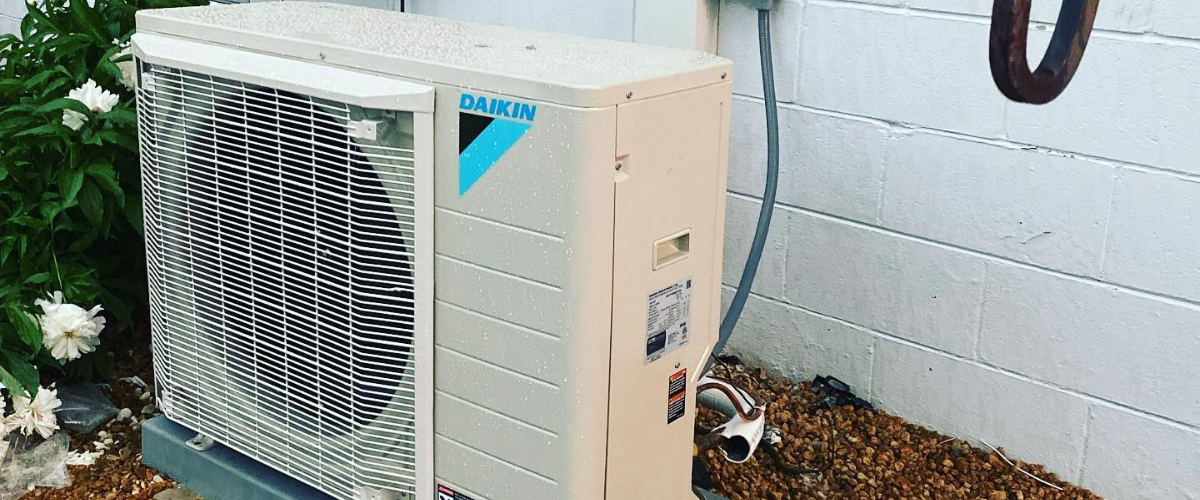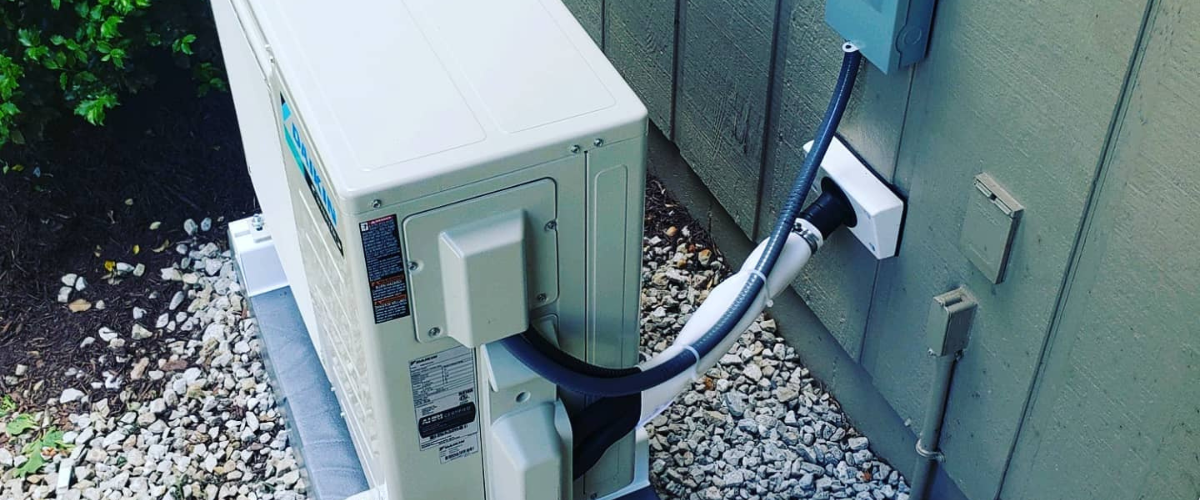Request Service
[forminator_form id=”83″]
Your heat pump is a crucial part of your home – it keeps you warm in the winter and cool in the summer. When it breaks down or starts running inefficiently, you lose money and comfort. If you’re considering heat pump replacement, we can help. In this blog post, we’ll provide you with all the information you need to make an informed decision about replacing your heat pump.
You lose both money and comfort when your heat pump breaks down or begins running inefficiently.
A heat pump repair will only address the problem for a short time, and you’ll need to replace it sooner or later.
Many customers are unsure if they will be able to pay for a new heat pump. Worse, getting an honest response on the internet – as well as labor costs – might be difficult. We’ve come to the rescue.
We at Air Master feel that when you have all of the information you need to make an informed decision, you may get the most out of a heat pump replacement.
Labor Disclaimer
Too many online quotations and estimates don’t include labor expenses. Labor might have a significant influence on the overall cost of your heat pump replacement.
The expense of heating and cooling your house is determined by where you live. Make sure you’re comparing like with like. Inquire about labor costs if they are included in the calculations provided by your HVAC partner.
Two Major Factors That Affect Heat Pump Cost
The cost of the equipment for your replacement heat pump is determined by two major factors:
- Your heat pump’s capacity to meet the heating and cooling needs of your space
- Your heat pump’s replacement efficiency, inclusive of energy savings
Heat Pump Capacity
Your heat pump must be capable of providing adequate power to meet your heating and cooling needs. As the amount of power supplied by your new heat pump increases, so does the cost of replacing it. The output, capacity, or size of your heat pump may be referred to as its power.
Your heat pump’s capacity is the limitation on how much heat it can produce. On the other hand, your HVAC provider must make a load calculation to assess your heat pump’s replacement capacity.
You should also be prepared to calculate the cost of any problems your heat pump would have to overcome in order to meet your heating and cooling requirements.
When it comes to suggesting or selling you a system, Bedford, Indiana licensed heating contractors like Air Master will always conduct a load calculation on your home. Don’t assume a prior calculation is still valid. Before any installation, make sure your HVAC business does a load check.
Heat Pump Efficiency Ratings
More efficient heat pumps, like all HVAC equipment, generally cost more up front.
Heat pumps are more expensive to buy and maintain than conventional gas appliances, however they could save you money in the long run. More efficient heat pumps can frequently offer greater comfort. Only you can decide if a more efficient heat pump is worth the cost. However, let’s speak about how to recognize them.
Heat pumps are split into two categories: air conditioners and heat pumps, with separate efficiency ratings since they provide both cooling and heating.
- Seasonal Energy Efficiency Ratio (SEER)
- Heating Seasonal Performance Factor (HSPF)
The cooling efficiency of a heat pump is measured using the SEER scale while it is running. Heat pumps have a range of 14-20 SEER.
When it comes to heating, the HSPF system is used to rate a heat pump’s efficiency. Heat pumps may have efficiencies ranging from 7.7 to 10. The effectiveness of a heat pump is quantified using the HSPF rating.
The amount of energy a heat pump consumes is the basis for both SEER and HSPF ratings.
Although both SEER and HSPF are calculated differently, higher SEER and HSPF ratings indicate more efficient heat pumps.
Heat Pump Parts
When people consider heat pumps, the first thing that springs to mind is often the outdoor unit. However, your heat pump isn’t as simple as it appears. Here’s a short list of some of the more common goods that come standard with most new heat pump installations:
- Indoor and outdoor units: A heat pump is a form of air conditioner that uses a heat-exchange mechanism to transfer heat from within your house to the outside and vice versa. A heat pump requires coils on the inside and outside of your property in order for it to work.
- Drain line: The average drain length for a heat pump is 15 feet. If your equipment necessitates a greater line in the location where you wish to install it, you may be charged an additional fee.
- Thermostat: Your existing thermostat may be able to communicate with your new heat pump. In some situations, your HVAC contractor will need to run additional wiring between your thermostat and the heat pump. You’ll almost certainly need a new thermostat if your old one isn’t compatible.
- Outdoor pad: The material on which your heat pump is installed makes a big difference. It should be stable, level, and weather-resistant. Air Master uses plastic pads that meet all of these requirements.
- Snow legs: The heater will require frequent maintenance, since it’s designed to operate 24 hours a day, seven days a week. Because you’ll be utilizing the unit inside the home or on an outside structure, you’ll need plenty of ventilation. The snow legs keep the outdoor unit off the ground and protect it from overheating and condensation buildup.
- Electrical components: This amount also includes the electrical disconnect and pipeline from the disconnect to the heat pump.
Some of these will incur additional expenses beyond the basic equipment. Others (such as the indoor and outdoor units) will be included in the standard package.
Rebates and Tax Credits for Heat Pumps
Rebates and tax incentives are available for a variety of reasons. You may qualify for one or more of the following based on the heat pump model you choose:
- Manufacturers frequently provide incentives in the form of rebates.
- Some local utilities provide discounts for a variety of furnaces, air conditioners, air handlers, and heat pumps.
- High-efficiency heating and cooling systems are often eligible for energy tax credits.
Rebates and tax incentives are not always available when heat pump replacements are done. But, before you put your signature on the dotted line, make sure to ask your HVAC contractor whether any of these things are true.
Heat Pump Replacement in the Bedford Area
It is critical to choose a contractor who understands the economics of your heat pump replacement. They should also be able to identify factors that may influence the cost of your system, such as beforehand.
However, when your HVAC system is installed appropriately by a competent contractor, it will comply with local building codes and product standards.
Request Service
Fill out this form to request service. Someone from our team will give you a call.
"*" indicates required fields



